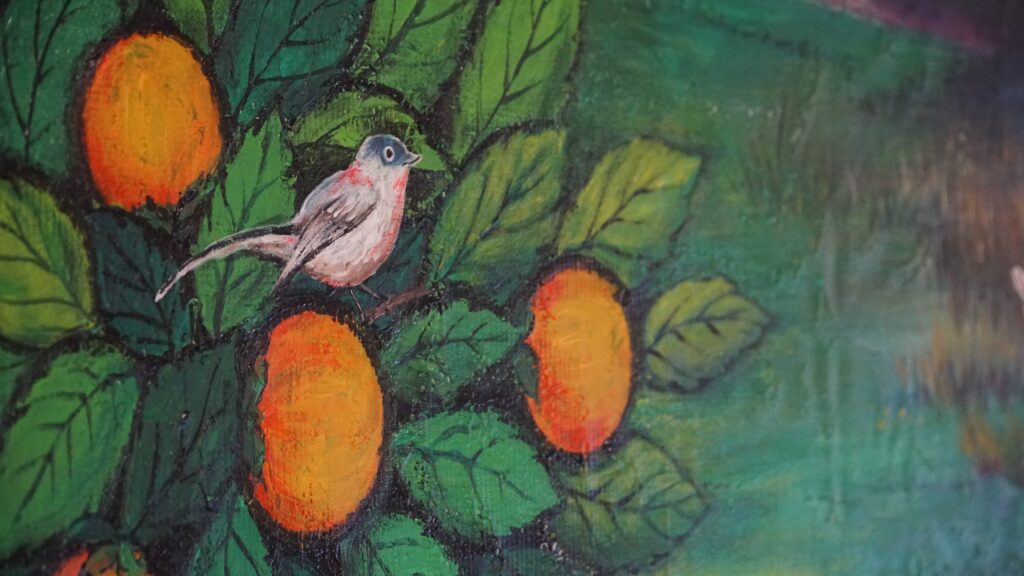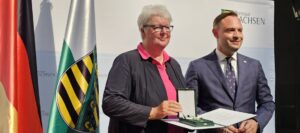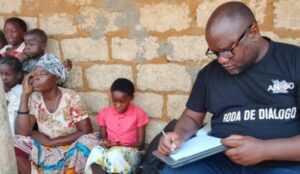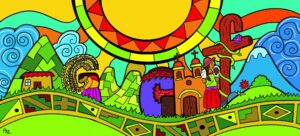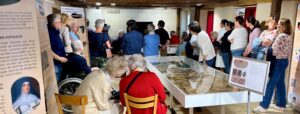Au cours de ces six semaines précédant l’anniversaire d’Aguchita, nous continuons à partager sur la façon dont sa vie et sa mission faisaient écho à chacun des six domaines d'intervention de la Congrégation – bien avant qu’ils ne soient définis dans nos prises de position. Dans ce quatrième partage, nous réfléchissons à l’approche d’Aguchita en matière d’écologie intégrale.
Aguchita a été baptisée dans l'église paroissiale de Nuestra Señora de las Nieves, dans la ville de Coracora au Pérou. Le nom de cette ville – où elle a grandi et passé son enfance – vient du mot quechua ‘qura’ qui fait référence à un marais où poussent à l'état sauvage des plantes herbacées. Cet environnement naturel a sans aucun doute façonné l'amour d'Aguchita pour l'environnement. L'extrait suivant, adapté du livre Aguchita: Miséricorde et Justice, montre comment Aguchita a reconnu la présence de Dieu dans tous les aspects de la Création.
Comme toutes les filles de cette époque, Aguchita travaillait dans les champs et s'occupait des animaux, ce qu'elle aimait faire. Sa nièce, Teresa Esther Chuquizuta, a rappelé que les parents d'Aguchita « possédaient des terres et fabriquaient du fromage » et que « l'amour d'Aguchita pour les plantes et les animaux en découlait ». Angela a rappelé comment "elle s'est toujours considérée comme une personne de la campagne, dans le sens où elle aimait beaucoup la nature ; elle disait que chaque plante était la manifestation de Dieu". En fait, Aguchita disait souvent aux femmes : ''une maison sans plantes est une maison sans vie.''
Entre 1970 et 1975, Aguchita est sollicitée pour apporter son soutien aux sœurs contemplatives de la Congrégation à Salamanque, au Pérou. Parfois, elle allait aux jardins avec une des sœurs qui souffrait de rhumatismes, en lui disant que cela lui ferait du bien au corps et à l'esprit. Elle croyait que la terre était capable de '' s’emparer de la maladie ''.
Le position de la Congrégation sur l’écologie intégrale comprend l’interdépendance de la science et de la théologie. Elle déclare qu'elles “offrent des informations mondiales fiables… [et] enrichissent notre compréhension du monde en tant que source de contemplation profonde et d'activité sacrée.''
Le thème de cette année Laudato Si’ Week – qui s’est terminée le 26 mai – est « Graines d’espoir ». Le thème est accompagné d'une citation directrice de Laudate Deum: ''Il n'y a pas de changements durables sans changements culturels… et il n'y a pas de changements culturels sans changements personnels'' (LD 70).
À partir des actions et des paroles d’Aguchita, nous pouvons voir comment elle a accueilli la nature comme un signe d’espoir et a reconnu l’interdépendance de toute la Création. Ses actions personnelles visaient à provoquer un changement culturel durable.
Êtes-vous ouvert à renouveler votre conscience, votre identité et vos comportements personnels pour réconcilier votre relation avec la Terre Mère ? Au fur et à mesure que s’approfondit votre conscience de la présence de Dieu dans toutes les dimensions de la Création, quels retournements personnels apporterez-vous pour apporter un changement culturel et durable ?
